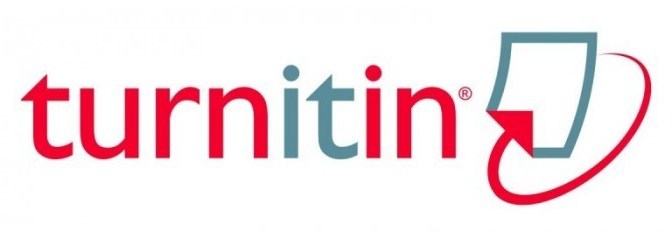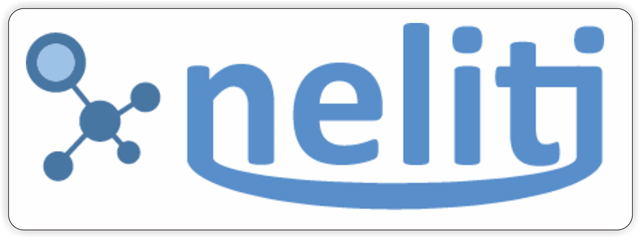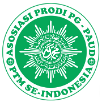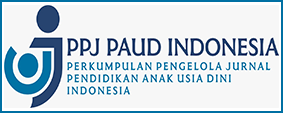- Focus and Scope
- Section Policies
- Peer Review Process
- Open Access Policy
- Archiving
- Publication Ethics
- Screening Plagiarism
- Abstracting and Indexing
- Copyright & Journal Licensi
- Article Processing Charge (APC)
Focus and Scope
TEMATIK: Jurnal Pemikiran dan Penelitian Pendidikan Anak Usia Dini has a focus & scope related to analytical studies and research results related to early childhood, including; the development of moral and religious values, physical motor development, emotional, social development, cognitive development, language development, artistic and creative development, childcare, childcare, early childhood education management institutions, early childhood development assessment, child development psychology, child empowerment, learning strategies, educational tool games, learning media, innovations in early childhood education and various fields related to Early Childhood Education.
Section Policies
Articles
Peer Review Process
Each article addressed to the editorial staff will be selected through an Initial Review process. Then, the reports will be sent to the reviewer's partner and will go to the following selection in the reviewer process. After that, the authors will return the information for revision. This process takes one month for the maximum time. Authors will assess the reviewer's peer partners from substantial and technical aspects in each manuscript. Blind Peer reviewer partners in collaboration with TEMATIK: Jurnal Pemikiran dan Penelitian Pendidikan Anak Usia Dini is an expert in Early Childhood Education and surrounding issues has experience in the management of prestigious journals and publications spread throughout the national and foreign countries. The editorial staff evaluates all submitted manuscripts. Manuscripts evaluated by editors for not conforming to the journal's criteria are rejected immediately without external review. Manuscripts considered potentially of interest to our readers are sent to reviewers. Based on the reviewer's recommendations, the editors then decide several possibilities: rejected, revision required, or accepted. The editor has the right to determine which manuscripts are sent to the journal to be published.
Review Process:
- The author submits the manuscript
- Editor's Evaluation (some manuscripts are rejected or returned before the review process)
- Reviewer process
- Editor's Decision
- Confirm to the author
Open Access Policy
TEMATIK: Jurnal Pemikiran dan Penelitian Pendidikan Anak Usia Dini is an Open Access journal which means that all content is available for free at no cost to its users or institutions. Users are allowed to read, download, copy, distribute, print, search, or link to the full text of the article or use it for legitimate purposes without prior permission from the publisher or author.
Archiving
This journal utilizes the LOCKSS system to create a distributed archiving system among participating libraries and permits those libraries to create permanent archives of the journal for purposes of preservation and restoration. More...
Publication Ethics
TEMATIK: Jurnal Pemikiran dan Penelitian Pendidikan Anak Usia Dini publication ethics refer to Cope of Publication Ethics (COPE) set by Lembaga Ilmu Pengetahuan Indonesia (LIPI) through Peraturan Kepala LIPI Number 5 the Year 2014 on Scientific Publication Ethics. COPE contracts all parties involved in TEMATIK: Jurnal Pemikiran dan Penelitian Pendidikan Anak Usia Dini manuscript publication processes: publisher, editors, reviewers, and authors. COPE TEMATIK: Jurnal Pemikiran dan Penelitian Pendidikan Anak Usia Dini concerns three principles underlying scientific publication ethics, including (1) neutrality, i.e., free from conflict of interests, (2) fairness, i.e., provision of authors' rights, and (3) honesty, i.e., free from duplication, fabrication, falsification, and plagiarism.
About COPE LIPI (Peraturan Kepala LIPI Number 5 the Year 2014 on Scientific Publication Ethics), there are four pillars of scientific publication that need to be referred to: (1) practices related to publisher tasks, which include establishing policy and publication programs, facilitating editors and reviewers work, respecting editors and reviewers decision, as well as determining sponsors and selecting the third parties. In publication practices, the publisher is obliged to guarantee submissions that comply with the Scientific Publication Ethics as a whole. In terms of sponsorship, the publisher needs to make sure that sponsors and the third parties do not complicate rewards and influence journal policy and programs; (2) practices associated with editors tasks, which include making a decision related to the publication of the manuscript, regulating reviews of the manuscript, as well as assuring the fairness of the results of the manuscript reviews, the confidentiality of the content, and protecting it from manuscript manipulation. (3) practices related to reviewers' tasks, including reviewing manuscripts either openly or in private, checking the accuracy and the authenticity of data sources, references, and concepts, as well as the objectivity of the content, and performing an unbiased review. (4) practices related to authors tasks, which are to examine practices related to authors tasks, including the authority of the manuscript, the statement of the originality of the manuscript, the detection of the manuscript duplication possibility, the acknowledgment of sponsorship, authority statements, and the statement of the sources of research funding.
Followings are rules and responsibilities of the publisher, editors, reviewers, and authors in detail.
General Duties and Responsibilities of the Publisher
- Determine journal name, scopes, and accreditation status when necessary
- Select editorial board members
- Define the relationship between the publisher, editors, reviewers, and other parties involved in the contract
- Appreciate confidentiality for contributing researchers, authors, editors, and reviewers
- Apply norms and conditions related to the intellectual richness, especially copyright
- Review the journal policy and deliver it to the authors, editorial board, reviewers, and readers.
- Establish a guide to ethics for the editors and reviewers
- Publish journal articles regularly
- Ensure the availability of sponsorship for journal publication
- Build cooperation and marketing networks
- Prepare permissions and other legal aspects
General Duties and Responsibilities of the Editors
- Meet the needs of readers and authors
- Seek to improve the sustained quality of the publication
- Apply processes to ensure the quality of the published manuscripts
- Put forward freedom to express opinions objectively
- Maintain the integrity of authors' academic tracks
- Submit corrections, clarifications, withdrawals, and apologies when necessary
- Be responsible for the manuscript styles and format; however, the content and all statements are the authors' responsibility
- Actively ask for opinions from the authors, reviewers, and members of the editorial board to enhance the quality of the publication
- Encourage assessment for findings published in the journal
- Support the initiative to reduce research and publication errors by requesting authors to attach the Ethical Clearance form, which the Ethical Clearance Commission has approved
- Support the initiative to educate researchers about publication ethics
- Review the effects of publication policy on authors and reviewers' attitudes to promote responsibility and minimize errors
- Be open-minded towards new ideas or perspectives that might contradict their own
- Make objective decisions by avoiding being persistent in particular opinions (of editors, authors, or third parties
- Encourage authors to revise manuscripts until they are published
General Duties and Responsibilities of the Reviewers
- Review manuscripts assigned by the editors and send the results back to them for publication.
- Review manuscripts within the given time and according to the submission guidelines and scientific publication principles (data collection method, authors legality, conclusion, etc.)
- Re-review manuscripts which have been revised by the authors based on the predetermined standards
- Encourage authors to change manuscripts by providing critiques, suggestions, and recommendations.
- Keep the authors' privacy by not publishing the review results, guidance, and advice.
- Do not review manuscripts written by themselves, both directly and indirectly.
General Duties and Responsibilities of the Authors
- Make sure that the criteria of an author have been met
- Be responsible collectively for the content of the manuscripts, including method, analysis, discussion, and details
- Mention research resources (including funding) both from direct and indirect supports
- Explain research limitations
- Provide feedback to the results of the review on time and professionally
- Inform the editors about a manuscript withdrawal
- Appreciate requests from the publisher for not publishing findings through interviews or other media before the manuscripts are published
- Inform the editors about manuscripts that belong to a longitudinal, multidisciplinary study (or written from different perspectives)
Screening Plagiarism
Manuscripts submitted to TEMATIK: Jurnal Pemikiran dan Penelitian Pendidikan Anak Usia Dini should be free from plagiarism, falsification, engineering, or significant material negligence. Authors are required to use the application for plagiarism checks a maximum of 20 percent. The level of filing equality should be below five percent. Improper citations of other people's work may be part of plagiarism. Automatic plagiarism is also prohibited.
Authors need to submit articles and captions related to published reports without being considered for publication elsewhere. The authors can download the form in Statement Form.
Before being accepted, the manuscript is tested for plagiarism using a grammar application accessed online https://turnitin.com/ and https://www.grammarly.com/.
Abstracting and Indexing
TEMATIK: Jurnal Pemikiran dan Penelitian Pendidikan Anak Usia Dini Indexed by:
Copyright & Journal Licensi
If accepted for publication, the copyright of the article belongs to the author. Copyright includes the exclusive right to reproduce or transmit manuscripts in any form and media: reprint, produce photographs, microfilm, or translated versions of the manuscript. Increasing parts of this journal, storage, and transmission of databases of any form or media, such as electronic copies, electrostatic and mechanical copies, photocopies, recordings, magnetic media, and so on, are permitted without permission. TEMATIK: Jurnal Pemikiran dan Penelitian Pendidikan Anak Usia Dini allows readers to read, download, copy, distribute, print, search, or link the full texts of its articles and allow readers to use them for any other lawful purpose. However, it can not be used for commercial purposes.

TEMATIK: Jurnal Pemikiran dan Penelitian Pendidikan Anak Usia Dini is licensed under a Creative Commons Attribution-NonCommercial 4.0 International License.
Article Processing Charge (APC)
Article Submission: 0.00 (IDR)
Authors do not pay Article Submission Fees or Free as part of the submission process to contribute to review costs.
Article Publication: 500.000.00 (IDR)
If this paper is accepted for publication, you will be asked to pay an Article Publication Fee to cover publication costs.



























